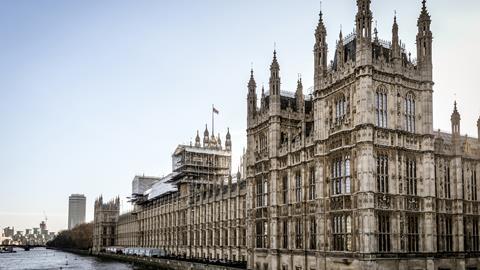The government has signalled that it will drop further reforms of judicial review from its legislative programme after suffering three narrow defeats in the House of Lords last week. Peers voted to remove ‘prospective-only’ quashing orders and the presumption in favour of ‘new remedies’ for judges from the Judicial Review and Courts Bill.
The House of Lords also passed an amendment which would limit the abolition of the so-called Cart jurisdiction, by which a party can bring a judicial review in the High Court when an application for permission to appeal has been refused by the Upper Tribunal.
The three amendments are likely to be reversed when the bill returns to the House of Commons later this month. However the controversy surrounding the bill appears to have prompted the government into dropping more radical legislation. Yesterday’s Sunday Times newspaper, quoting 'Whitehall sources', said that next month’s Queen’s Speech will confirm that legislation on rights to challenge government policy in court is no longer on the timetable.
In last week’s Lords proceedings, peers supported an amendment by Lord Marks, commercial law silk and the Liberal Democrats’ justice spokesperson, by 148 votes to 143 to remove the power to make prospective-only quashing orders from the bill.
Former master of the rolls Lord Etherton also moved an amendment to remove what he described as the ‘presumption’ in favour of the new remedies –prospective-only and suspended quashing orders – which he said is ‘either constitutionally dangerous or unnecessary’.
The amendment, which Etherton said was supported by the Law Society, the Bar Council, the Bingham Centre for the Rule of Law and the Public Law Project, was passed by 159 votes to 134.
Etherton also drew support for his plan to ‘strike a middle course’ in relation to Cart, which would maintain the jurisdiction but without a right of appeal from a refusal of permission to appeal or the dismissal of the substantive case by the High Court – with an exception for cases involving a point of law of general public importance, which can be heard by the Supreme Court.
Lord Faulks, who chaired the Independent Review of Administrative Law which recommended abolishing Cart, said Etherton’s amendment ‘seems to be something of a fudge,’ adding: ‘It will frustrate the purpose of the bill.’
Justice minister Lord Wolfson also urged peers to support the clause in the bill which would overturn Cart, which he said ‘restores balance in the proper functioning of the tribunal system and fixes a serious inefficiency’. However, Etherton’s amendment was passed by 146 votes to 132.
The Sunday Times reports that the announcements dropped from the Queen's speech are those that divide Tory opinion. The most significant U-turn is expected to be on planning reform.




























2 Readers' comments